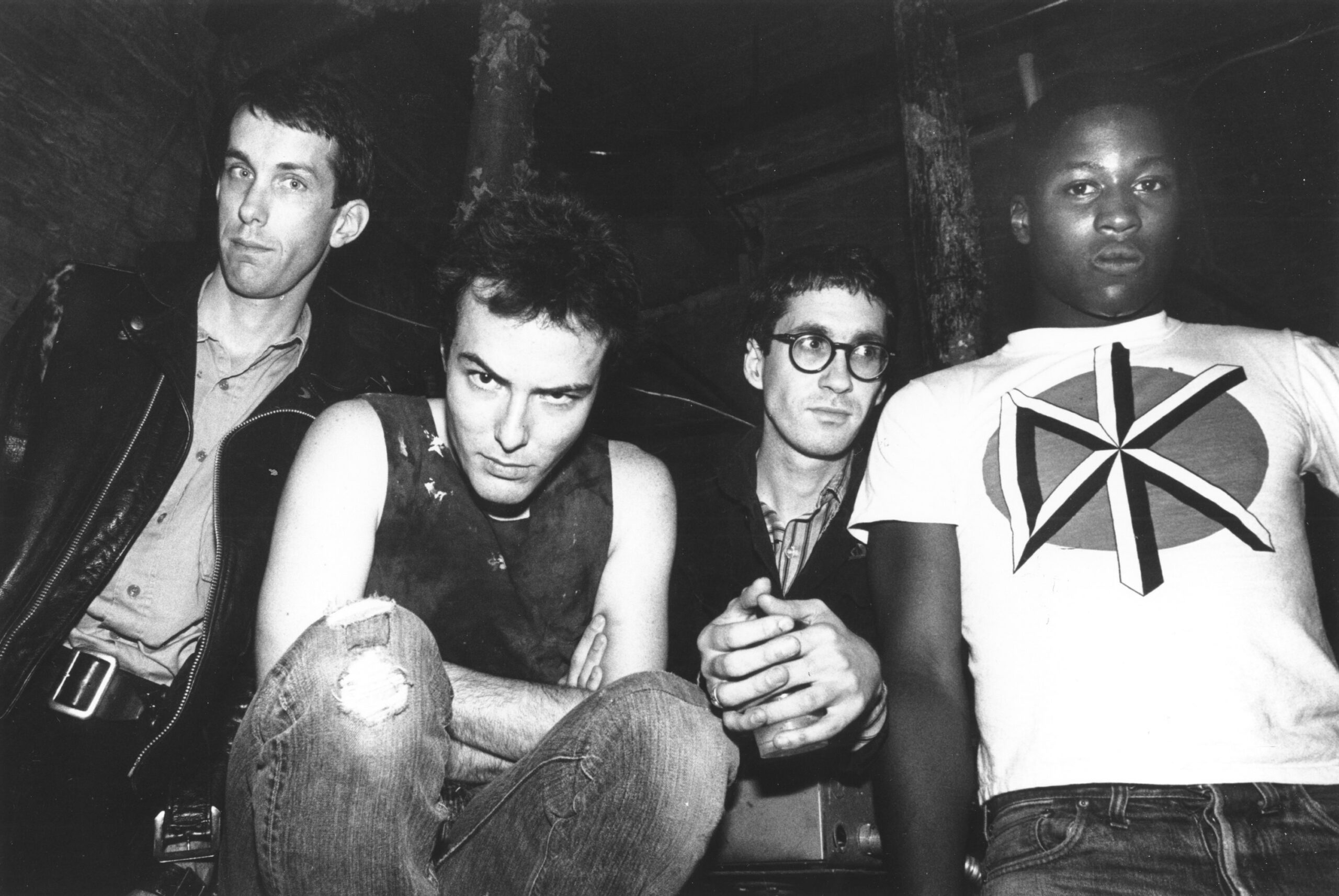Gallery of 6 photos
the slideshow
D.H. Peligro, longtime drummer for the influential San Francisco punk band the Dead Kennedys—and one of the first Black musicians to break into the overwhelmingly white punk rock scene—died suddenly at his Los Angeles home on Friday. He was 63.
In the wake of Peligro’s death, many prominent musicians—including Michael “Flea” Balzary, bassist for the Red Hot Chili Peppers—have taken to social media to publicly mourn his passing. A statement posted on the Dead Kennedys Instagram said that Peligro “died from trauma to the head caused by an accidental fall.”
Jello Biafra, the band’s original vocalist, also posted his reaction to Instagram. “I feel like I’ve been hit by a train,” he wrote. “He was not just our powerful unforgettable drummer. He was a gifted singer, songwriter, guitarist and so much more.”
Born Darren Henley in 1959, Peligro grew up in St. Louis, Missouri, and arrived in San Francisco at age 15. At first, he lived in a van on Folsom Street in SoMa. Shortly after, he became a regular at a punk venue on Valencia Street called the Deaf Club and joined his first band, SSI. He joined the Dead Kennedys in 1981—just a few years after they were formed in 1978—replacing founding drummer Ted (né Bruce Slesinger).
Being a Black man in a predominantly white musical subculture wasn’t always easy for Peligro. He once told musician and journalist Mark Prindle that he “felt a little skittish” about his place in the Dead Kennedys early on. He also recalled encountering overt racism—even as a contributing songwriter to a popular band.
“Some of the bouncers wouldn’t let me into the club,” Peligro told Prindle. “I remember distinctly this guy who was like a skinhead who was like, ‘If they’re Black, send ’em back!’”
Peligro also performed briefly with the Red Hot Chili Peppers in 1988 but was fired due to substance-use related issues. In addition to playing with the Hellations, Jungle Studs, Nailbomb, the Feederz, Lock-Up and the Two Free Stooges, he also recorded three solo albums as Peligro between 1995 and 2001. In 2023, he will posthumously appear in the sci-fi comedy “Free LSD” about LA punk band OFF!
Still, Peligro’s legacy is tied to the Dead Kennedys, whom many consider to be the most important punk band from the Bay Area. With a band name that references an assassinated president and song names like “Too Drunk to Fuck,” the group shocked the public and injected a leftist political edge into the local scene.
Throughout the 1980s, the band played free shows with a political mission, including the Rock Against Reagan concerts. In 1979, Biafra ran a phony campaign for mayor on a platform to “clean up Market Street.” He called for businessmen to wear clown suits and erected effigies of Dan White, the politician who assassinated Mayor George Moscone and Supervisor Harvey Milk, so that people could throw eggs at them.
Throughout his career, Peligro remained outspoken about the social injustices of the punk movement. “It’s a bit more open and accepted today, but there’s still pockets of people who want to use punk rock to create hate music,” he told LA Weekly. “That angers me to no end.”
Though he lived the last years of his life in Los Angeles, Peligro celebrated San Francisco as an incubator of punk. “Gay people, straight people, bisexuals, fat, skinny, Filipino, Black, white—it was like the melting pot, and that’s what I dug about San Francisco,” he said in his interview with Prindle. “It was my first introduction to gay people and different-colored hair and mohawks and people just living free.”
